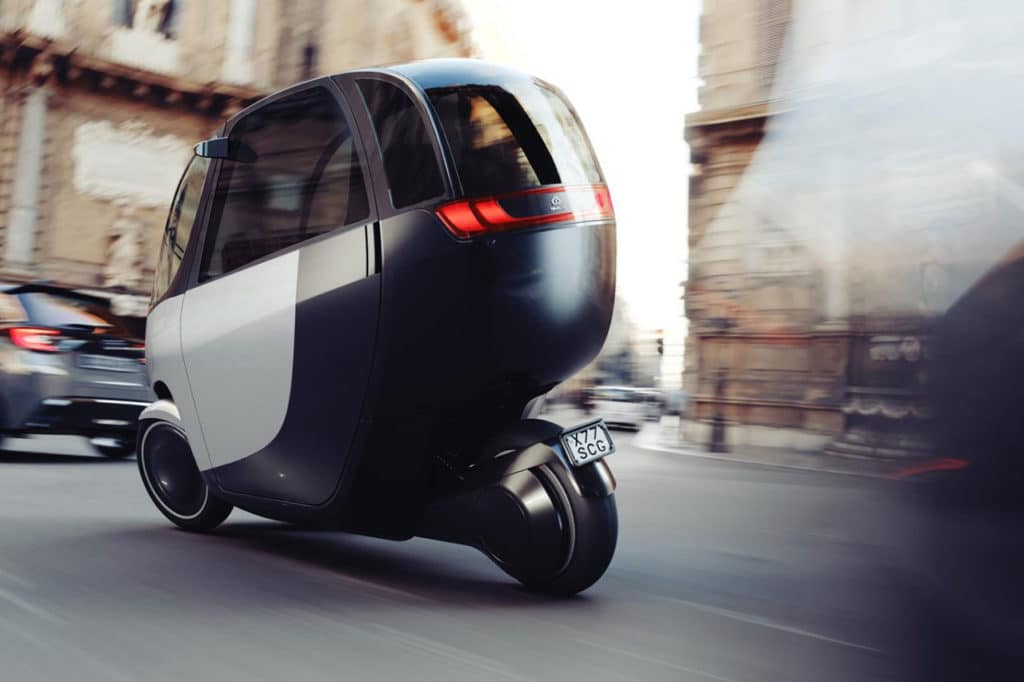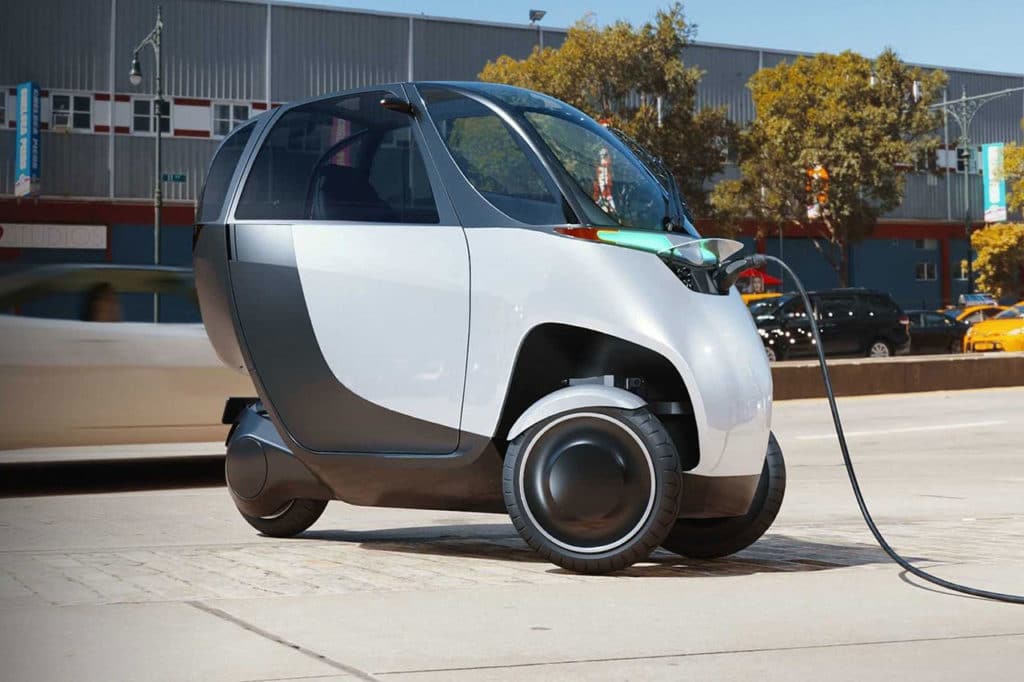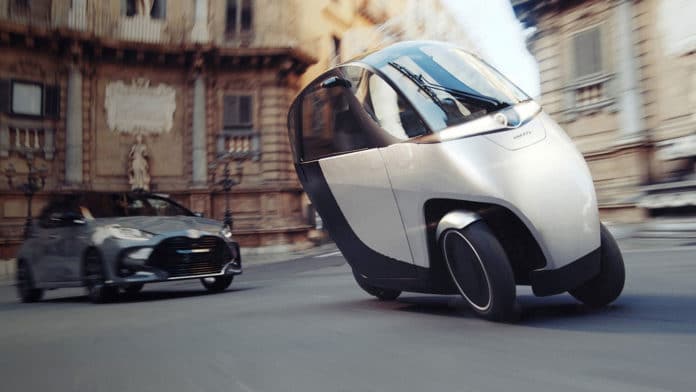There’s no denying that motorcycles are cool, fun and fuel-efficient, but it’s also true that riding a motorcycle is riskier than driving a car. On the other hand, cars powered by fossil fuels are major contributors to air pollution. Many people have realized that electric cars ensure cleaner air but cannot afford them. Also, often you find yourself stuck in traffic for an hour or more.
A Michigan-based startup, Nimbus, has proposed Halo, a three-wheeled, fully-enclosed design to solve these problems. Currently in functioning prototype form, the “Nimbus Halo” promises to be as rational as a motorcycle to use, as safe and convenient as a car, and as clean as any other EV around. The tilting vehicle has two front wheels that make it able to lean into turns like a motorbike, and both improve its handling and decrease the chances of it tipping over.

With a length of 2.3 m and a width of 0.8 m, the two-door vehicle seats a driver and passenger, one behind the other. It is made of high-strength steel and aluminum alloys with a thermoplastic shell to be light and safe at the same time. In its final commercial form, the Nimbus should weigh 290 to 315 kg and have a top speed of 50 mph (80 km/h).
The customer can choose between two battery options: the smaller 8.1 kWh battery pack can travel 78 miles (126 km), while a 12.4 kWh battery pack offers a range of 119 miles (191 km). A household outlet will take 5.4 or 8.3 hours to charge the batteries up to 95% of their capacity. However, using a Level 3 fast charger, this time drops to an impressive 45 minutes in both cases.

The company also promises that the Halo will have three airbags (one front, two side curtains), side-impact bars, automated emergency braking, ABS, traction control, and lane departure warning. Other features include heating, air conditioning, Bluetooth speakers, and a touchscreen control center.
At the moment, Nimbus indicates that they have a working prototype and expect the final version to arrive by mid to end of next year. The company is accepting refundable deposits, which will be put toward the planned $6,420 base price. Customers will also have the option to rent one, starting for $99 a month. Deliveries will begin by mid-2022 in the US and Europe, while Latin America will get the Halo by late 2022. Asia will receive it in early 2023.
